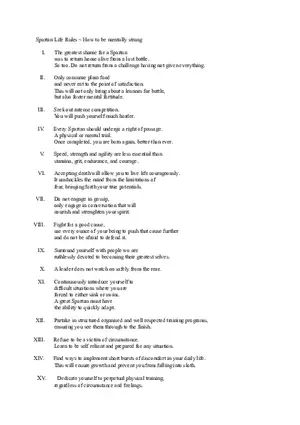Lecture Note
Class 6 Notes - Innovative Methods in Psychology
-
University:
Central Arizona College -
Course:
PSY200 | Social Psychology Academic year:
2023
-
Views:
148
Pages:
2
Author:
Lucas H.
Related Documents
- How Emotions Shape Our Memories
- Exploring Sport Psychology'S Role
- The Necessity Of Self-Regulation
- Perspectives On Self-Regulation Techniques In Competitive Sports
- Incorporating Mindfulness Training In Athletic Competitions
- Evaluating Consistency And Change In Personality Over Time
- Cognitive Journey: Encoding & Retrieving Memories
- Strategies To Improve Memory
- Navigating Through Adolescent Daydreams Opening Thoughts
- Lecture Notes On Attention
- Religion And Ethics
- The Psychology Of Flow State - Unlocking Human Implicit
- The Key Principles Of Perception
- Sensation, Perception
- Levels Of Processing Model & Memory Concepts
- Introduction To Cognitive Psychology
- Objectivism VS Subjectivism In Ethics
- Growing Self-Control In Competitive Sports
- Egoism VS Universalism In Ethics
- Objectivist Theories In Ethics
Report
Tell us what’s wrong with it:
Thanks, got it!
We will moderate it soon!
Report
Tell us what’s wrong with it:
Free up your schedule!
Our EduBirdie Experts Are Here for You 24/7! Just fill out a form and let us know how we can assist you.
Take 5 seconds to unlock
Enter your email below and get instant access to your document










